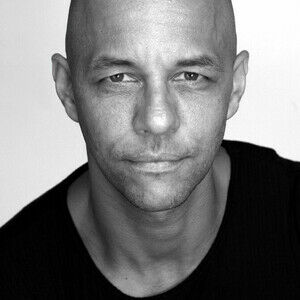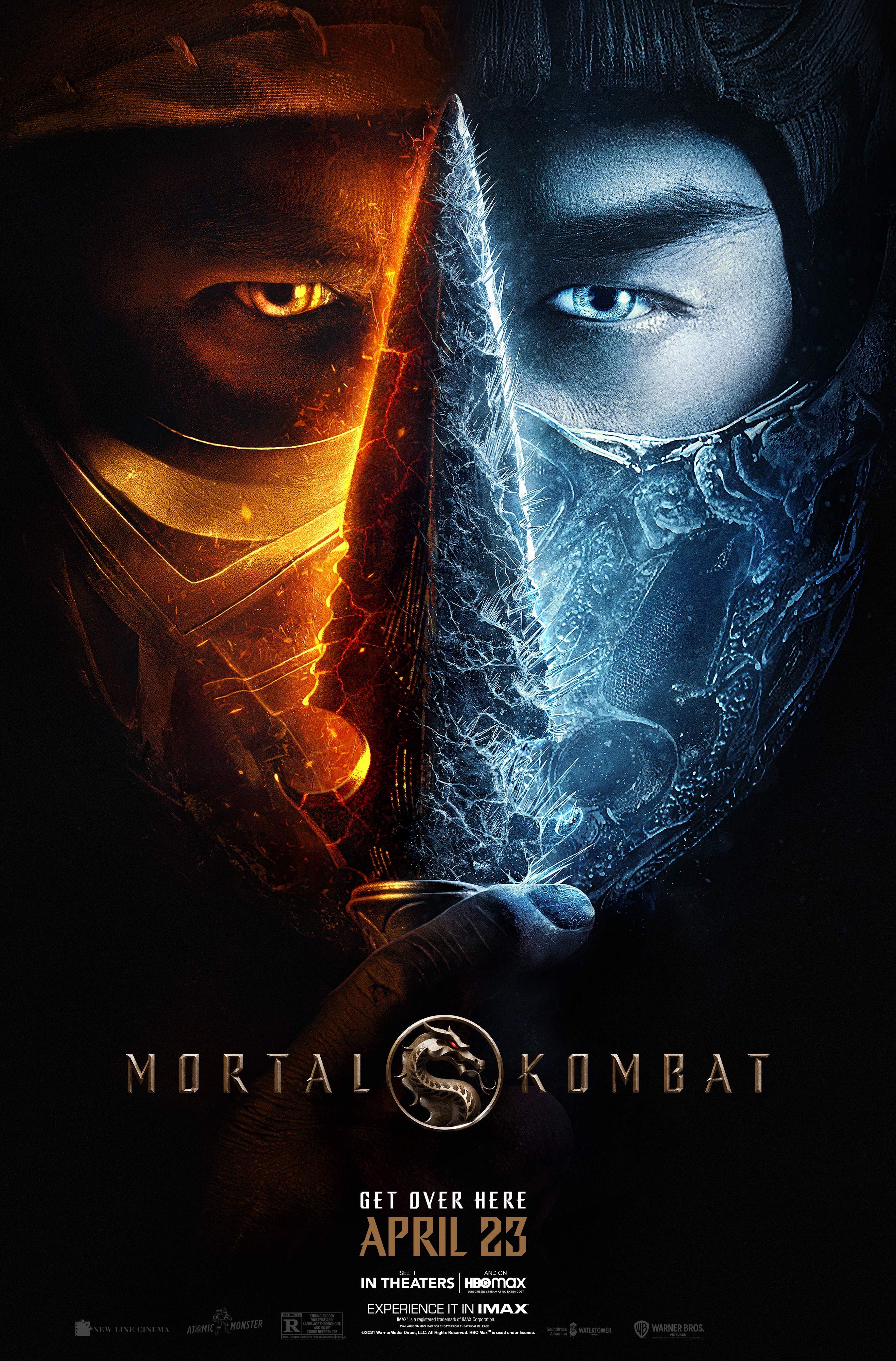How to Plan and Shoot Action Sequences - Learn From a SAG Award -Nominated Stunt Performer (THE MEG, AQUAMAN)


Webinar hosted by: Philippe Deseck
SAG-nominated Stunt Performer & Coordinator,
Philippe Deseck has been involved in the film industry for over twenty years as a Stunt Performer and Stunt Coordinator earning him a Screen Actors Guild Nomination for outstanding performance by a stunt ensemble in motion picture Shang-Chi and the Legend of the Ten Rings. Having worked on nearly 50 films & TV shows, some of his notable credits include Street Fighter, The Chronicles of Narnia: The Voyage of the Dawn Treader, Killer Elite, Spartacus, San Andreas, Kong Skull Island, Pirates of the Caribbean: Salazar’s Revenge, The Meg, Aquaman, Mortal Combat, The Tidings for Netflix and his SAG Nomination for Shang-Chi and the Legend of the Ten Rings and many more. He is regularly commissioned for major motion pictures to create the Previs where he recreates the live action sequences required in the script of the movie. He has hosted stunt workshops around the world for actors and is dedicated and passionate about a life in film and televison. Full Bio »
Webinar Summary

Learn everything you need to know about how prep and shoot a world-class action sequence in your films or TV shows from a SAG-nominated stunt performer and coordinator on THE MEG, AQUAMAN, MORTAL COMBAT, STREET FIGHTER, KILLER ELITE, SPARTACUS and more!
Action is a universal language in film.
A well designed and well shot action scene in a movie can define a film and be the most memorable part, whether its Steve McQueen's car chase in BULLITT or Tom Cruise's motorcycle jump in MISSION IMPOSSIBLE - DEAD RECKONING PART ONE. However, film schools tend to shy away when it comes to teaching students on how to shoot an action sequence. It’s either too dangerous, too expensive, stunt coordinators are required, insurance does not cover action sequences, or a myriad of other. reasons. As such, many filmmakers only focus on drama as they do now know how to craft and execute an action sequence in a professional and safe manner. The result is most filmmakers miss out on the opportunity to expand their film making skills when it comes to shooting action. On independent films, more often than not, action is usually the first thing producers will cut out of a script in order to meet their budget criteria.
In this exclusive Stage 32 webinar, stunt performer and coordinator Philippe Deseck will take you through the fundamentals of how to shoot an action sequence like a pro. Philippe has been involved in the film industry for over twenty years as a Stunt Performer and now Assistant Stunt Coordinator. Some of his films include THE MEG, AQUAMAN, MORTAL COMBAT, STREET FIGHTER, KILLER ELITE, SPARTACUS, SAN ANDREAS, KONG SKULL ISLAND, PIRATES OF THE CARIBBEAN: SALAZAR’S REVENGE, THE CHRONICLES OF NARNIA: THE VOYAGE OF THE DAWN TREADER, SHANG-CHI, and many more… In addition to his credits as a Stunt Performer, Philippe is gets involved in directing and editing, giving him expert perspective on how to create masterful action sequences from all sides. His skill has also taken him to performing safety on set and writing safety reports for action sequences. Philippe has also taught action workshops for actors and has taught stage combat at the New York Film Academy in Australia.
Philippe will teach you everything you need to know about shooting action sequences. He will demonstrate the basic fundamentals which can be applied to any action sequence and he will show you how to bridge the gap between a stunt coordinator and a director so they get the most out of every opportunity together. Building productive, effective and trusting relationships is an important part in any filmmaking process and it is critical when it comes to filmmakers and stunt coordinators.
In this information-packed webinar you will learn how to design an action sequence from script to final print on film and how you can collaborate with all relevant departments in order to get the shots required and piece them together to take your audience on a ride they will never forget. You will walk away with a comprehensive understanding of the different filming styles that are used in Hollywood and around the world, and you will get a true sense of how to create the illusion of action safely.
This webinar is a rare opportunity to educate yourself and open your mind to new possibilities of how to design your action sequences, shoot them and have them shown on the silver screen.

What You'll Learn
An Introduction to Stunts/Action
- What is the function of a Stunt Coordinator
- What is the function of a 2nd Unit Director
- What is the function of an Action Director
- What is the function of a Stunt Double
- What is the function of a Choreographer
What are the different hierarchy systems used in Hollywood and Asia
- What is the difference between Hollywood and Asia
- Where does the Stunt Coordinator fit in
- Where does the 2nd Unit Director fit in
- Where does the Action Director fit in
- Who are the most renown Action Directors in the film industry
- Recommended movies to watch
Designing your Action Sequence from Script to Final Product
- What’s your interpretation of the Script
- Deciding what System is going to be used in order to hire the right people
- Hiring a Stunt Coordinator, 2nd Unit Director, Action Director
- Using Insurance indemnity
- Thought pattern of the Stunt Coordinator
- Designing the Action with the Stunt Performers
- Designing the Action with the Actors
- Collaborating with the different HODs (Head of Departments) such as Art Department, Props Department, Costume Department, Make-Up Department, Special FX, Visual FX, DOP, Writers, Directors
- Creating a Pre-Set Design and demonstrating your Action Sequence
Filming an Action Sequence
- First Rule of Film Making
- What are the different filming Styles – Master Shots vs Sequential Shooting, Docu Drama Action, Symmetric Shots, Shakey Camera vs Steady shots on a tripod
- Story line of an Action Scene: Beginning – Middle and End, Protagonist, Antagonist
- Filming of Time within an Action Scene: Long Span of Time, Short Span of Time
- How to create the Illusion of Action: How to make things look real in an unreal manner
- How to Film an Action Sequence using Stunt Doubles
- How to Film an Action Sequence with Visual Effects in mind
- The Rule of Three shots per action
- Using a Stunt Lens
- Framing of an Action Shot
- The benefits of using Variable Frame Rates in your Action Scene
Previsualization
- Benefits of using Live Action Previsualization AKA Previs
- Examples of Previs with animation and without animation
- Different kinds of Previs used e.g. audience rating Previs
- What to look out for when presenting your Previs to Directors/Producers
Editing an Action Sequence
- Principles of Editing an Action Sequence
- The use of Sound FX
- The Difference of editing Master Shots vs editing Sequential Shooting Shots
How to Practice Shooting Action Sequences
- Find a simple action scene and recreate it shot for shot
- Create a storyboard of the action sequence
- Splice the action sequence and duplicate each shot
- Rehearse with your performers
- Use a camera with variable frame rates
- Use a camera with interchangeable lenses
- Start experimenting with your own shots
Q&A with Philippe
About Your Instructor

Philippe Deseck
FAQs
Q: How do I watch my webinar live?
A: If you received a confirmation that your webinar is on Go to Webinar, you will receive an email from Go to Webinar with further instructions for participating in the live webinar. You can also access your webinar link in your purchase history located under settings in the top right-hand corner of your Stage 32 profile.
If you received a confirmation that your webinar is on Zoom, you will receive a separate email from Zoom with further instructions for participating in the live webinar. Your login link will not be in your Stage 32 profile. If you did not receive your link via Zoom please email support@stage32.com.
Q: How do I watch my webinar on demand?
A: You will be able to watch your webinar on demand as many times as you’d like inside your Stage 32 profile. The recording is processed and posted between 24-48 hours after the webinar concludes. You can follow the instructions below.
YOU MUST HAVE A STAGE 32 PROFILE TO WATCH YOUR VIDEO – STAGE 32 IS FREE TO JOIN
If You Already Have a Stage 32 Profile:
- Log into your Stage 32 profile
- Click "Settings" in the top right-hand corner (gear icon)
- Click "Purchase History"
- Choose this webinar and click the link to view
- Go to www.stage32.com
- Create a profile using the SAME email address you used to sign up for this webinar. The email addresses must match in order to watch the webinar.
- Once you have your profile set up, you can view the webinar by clicking "Settings" in the top right hand corner (gear icon)
- Click "Purchase History"
- Choose this webinar and click the link to view
Q: What is the format of a webinar?
A: Stage 32 Next Level Webinars are typically 90-minute educational broadcasts that take place online using a designated software program from Stage 32. Your webinar will be taught by a working industry professional with in-depth teaching on a topic. If you are able to attend live you will be able to ask your Stage 32 Educator questions during Q&A.
Q: What are the system requirements to watch my webinar live?
A: You will need to meet the following system requirements in order to run the webinar software: Windows 7 or later Mac OS X 10.9 (Mavericks) or later.
If you have Windows XP, Windows Vista and Mac OS X 10.9 (Mountain Lion): The webinar software does not support these operating systems. If you are running one of those operating systems, please upgrade now in order to be able to view a live webinar. Upgrade your Windows computer / Upgrade your Mac computer.
Q: What if I cannot attend the live webinar?
A: If you cannot attend a live webinar or purchase an on demand webinar, you will have access to the entire recorded broadcast, including the Q&A.
Q: Will I have access to the webinar afterward to re-watch?
A: Yes! Like all Stage 32 education, after the purchase of a live or on demand webinar, you will have on-demand access to the recording.
Q: How do I get a copy of the handouts provided?
A: If the webinar you take included handouts you can find them as downloads underneath your on demand video. You must be logged into your Stage 32 profile to view the video and get the handouts by clicking settings in the top right hand corner, then clicking purchase history.
Q: What if I need accessibility and accommodations?
A: Email support@stage32.com to request accommodations.
Thanks for your loyalty to Stage 32 Education. We value having you in the Stage 32 community.
If you have any further questions, we are always happy to help. Please contact Stage 32 support at support@stage32.com.
Relevant Tags
Share with friends:
Questions?
Other education that may be of interest to you:
Stage 32 Presents: Industry Professionals Roundtable Discussion - The Current State of the Television Industry During COVID-19
Founded in 2011 by Richard "RB" Botto, Stage 32 is the world's largest online platform connecting and educating film, TV and new media creatives and professionals worldwide. Stage 32 works with over five hundred industry professionals and executives who provide education, instruction and professional opportunities for members of the platform. Stage 32 currently has over 1,200 hours of exclusive film, television and digital craft and business education in its library. Stage 32 members use the platform daily to build their network, take online webinars, classes and labs, find work and cast and crew their projects. Stage 32 members range from students to Emmy, BAFTA and Academy Award Winners. We work tirelessly to ensure that you know that Stage 32 is your online home to stay connected with over 600,000 creatives and professionals from across the globe. Now, we are excited to present a virtual panel featuring some of the top minds in the Stage 32 community to discuss the current state of television, as the industry adapts to a new development and production landscape after the COVID-19 pandemic and a continuing battle between the WGA & ATA. In this roundtable discussion you will hear the point of view of a production company (Tracy Mercer, Senior Vice President, Television at Amasia Entertainment), a television packager (Stuart Arbury, Director of TV & Episodic Content at Ramo Law), a literary manager (Raquelle David of Elevate Entertainment), a writer, producer, Stage 32 CEO (Rich “RB” Botto), all moderated by producer, writer, and the Stage 32 Director of Script Services (Jason Mirch). Stage 32 is proud to be putting the "social" in #SocialDistancing. Please share this event on your social media and tag @stage32 on Twitter and @stage32online on Instagram.
Stage 32 8-Part Lab: Create All The Tools You Need To Sell Your Holiday Romantic Comedy
Only 2 Spots Still Available In This Lab - Grab Your Spot Now Create all of the elements that you need to pitch and sell your holiday romantic comedy feature film in 8 weeks with a Warner Bros., Paramount, Disney executive and producer who has made television movies with Hallmark and Nickelodeon including A LOUD HOUSE CHRISTMAS and CHRISTMAS WITH THE DARLINGS! ***Flexible Learning: if you cannot attend any of the sessions live don't worry - you will be sent the links to the recordings of each session within 48 hours of the live session and have access to Matt on email to ask him any questions so you can keep up at your own pace and schedule.*** Payment plans available - contact edu@stage32.com for details The holiday season will be here before you know it and audiences will be clamoring for new lighthearted television holiday romantic comedies to enjoy with the ones they love. With these movies in such high demand on networks like NBC, Hallmark and Lifetime and streamers like Netflix and Paramount+, it’s never been a better time to create and sell your own holiday romantic comedy. In this exclusive interactive 8-session Stage 32 lab, you’ll get hands-on guidance to bring your fantastic idea to life from concept to treatment, one-sheet and pitch that you can sell, all while being mentored by an industry veteran and holiday romantic comedy producer. You’ll learn who the TV and streaming buyers are for holiday romcom films, why you need a one-sheet and a treatment to meet with them to pitch your idea, what story elements they’re looking for, and how you can approach them with confidence. Guiding you through the entire process is Matt Bierman, a studio executive and producer with over 25 years of experience. Matt has previously worked as an executive at Walt Disney Pictures, Paramount, Warner Bros., Village Roadshow, and more. He also developed and produced movies for Hallmark and Nickelodeon. Matt has vast experience making holiday films and romantic comedies for television, including A LOUD HOUSE CHRISTMAS, CHRISTMAS WITH THE DARLINGS, LOVE AT FIRST BARK, LOVE UNDER THE STARS, and more. And he will be using his work as case studies throughout the lab. Matt is only accepting 9 more people in his lab to make sure everyone's project get focused attention. You’ll learn in an online classroom setting, where students are encouraged to troubleshoot their ideas and give notes on each others’ work. You’ll also have assignments after every session to guarantee that you’re always progressing toward the completed materials you will need. You’ll also have TWO one-on-one consultations with Matt during the lab to go through the revisions you’ve made and receive feedback on your work, with notes on how to make it even better and where you should consider pitching it. You’ll walk away from this lab with all the materials you will need to successfully pitch your holiday romantic comedy feature film - including your logline, one-sheet, and pitch - which have been developed with the mentorship of an industry vet and you'll know who to pitch and how to approach them. If you’re passionate about bringing your holiday romcoms to television, don’t miss out on this incredible opportunity to work with and learn from Matt, and take your ideas to the next level. Praise for Matt's Talent & Knowledge: “Matt Bierman is one of the best movie execs and producers that I have worked with” -- Brian Levant, director of Jingle All The Way, A Christmas Story 2 "This lab was one of the best educational experiences I have ever experienced. I feel so confident in my work after getting guidance from Matt. Thank you, Stage 32!" -- Rebecca M. "Matt Bierman knows his stuff! I highly recommend taking any course he is teaching." -- Marcus E.
60 Minutes With Literary Manager Spencer Robinson
Join literary manager Spencer Robinson from Art/Work Entertainment as he talks about the state of the comedy writing industry for film & TV and answers questions exclusively for the Stage 32 community!
They Said "No" - Why Did They Pass On My Material?
Stage 32 is extremely excited to exclusively present They Said "No" - Why Did They Pass on My Material taught by Dan Wiedenhaupt, former Creative Executive of Atlas Entertainment (WONDER WOMAN, JUSTICE LEAGUE, SUICIDE SQUAD, AMERICAN HUSTLE, THE DARK KNIGHT TRILOGY) Many filmmakers and writers look forward to that exciting moment when they get their work in front of executives. Once in front of an executive, it's exhilarating waiting for the decision makers to view a reel, hear a pitch, or read a script. Then, when the call comes and the decision has been made, sometimes it's a "pass" or "no" and the only question left on a filmmaker or writer's mind is "Why?" Why did they pass on my material? Says Dan, "After reading thousands of scripts and hearing hundreds of pitches, I found that there are many common problems and red flags in scripts and presentations that nearly everyone makes - problems which will immediately make me, or another executive, pass on the script or idea. This is something that affects every single director or writer at any stage of the process - whether you're a first-time filmmaker or a Hollywood veteran. I have spent several years working in all aspects of film, television, and commercials - from both a physical production and development angle. I've seen the best of the best and I've seen some of the worst. After this time of cultivating my taste and my thick skin, I'm ready to pay the wisdom forward. I will be brutal, direct and to the point, and hopefully a little funny, pulling back the curtain of the development process." Dan will teach you why you are not receiving the response you are looking for from your film or screenplay pitch and how to fix those issues immediately. He will show you the do's and don'ts related to introductions and openings of a pitch or submission. He will teach you the red flags within your pitch including your story, presentation and personality. He will dive into what execs are looking for, how to assure you're tailoring your pitch to who you're pitching and navigating the "Culture of No" (and giving them a reason to say "Yes".) Dan will even show you examples of pitches he's passed on and pitches that had him begging for more. That's just some of what Dan will tackle, and rest assured, he'll leave you not only with a wealth of actionable information, but a ton of inspiration as well! Please note Dan elected to not to not be on camera, but you will see his full presentation. Dan will explain to you exactly what it looks (and sounds) like from an executive's side of the table. He'll give you the tips and tricks to assure that your film or screenplay pitch is on point and attractive to representation, buyers, producers, financiers and development execs. PRAISE FOR DAN'S TEACHINGS: "There's nothing like learning at the feet of an expert in their field. I was inspired from the beginning to the end!" -Marla O. "There's nothing worse than being rejected. Except now understanding WHY I've been rejected. Thank you, Dan, for making me see the error of my ways and helping me course correct." - Terry G. "Worth 10 times the price. Gold." - Thom P. "I can't believe I'm saying this, but thanks to Dan, I can't wait to pitch. What was pure horror in my mind has now turned to an abundance of hope."- Tasha P.
Directors: How to Get Believable Performances from Actors
THIS 4-PART CLASS IS NOW AVAILABLE ON DEMAND! As a director, one of your most important jobs is eliciting great performances from actors. Fail at that, and your film or series could crumble under the weight of bad acting. Although the best directors shape performances with a deftness that may seem effortless, it is not. In fact, becoming a great director of actors is hard work and takes years of disciplined practice. Like playing a violin, it is a skill that must be nurtured. Yet if you can achieve this crucial skill and relationship, you’ll be able to greatly elevate your films and projects and champion your actors at the same time. The film director’s working relationship with an actor starts in the first casting session, continues through the various rehearsal stages, onto the set and ends in the ADR session. Most trained actors begin by trusting the director, but if you can’t direct actors in a language they understand, you may have a difficult time getting actors to trust you. And if actors don’t trust you, you will have a difficult time blocking them on set and getting layered performances from them. It’s important to meet actors where they are, and we’ve brought in the perfect person to explain how to do this. Peter Marshall is a director and film directing coach with over 40 years of experience including 12 features, 16 TV movies, 8 TV series, over 30 episodes of TV drama, 50 hours of documentary and educational programming, and over 20 commercials. Through his career, Peter has worked with and helped elevate the performances of actors such as Peter O'Toole, Morgan Freeman, John Travolta, Kathy Bates, Michelle Pfiefer, Marcia Gaye Harden, Madeleine Stowe, Mel Gibson, Ashton Kutcher, Goldie Hawn, Judy Davis and Adam Sandler. He has also had the opportunity to work alongside and learn from other directors like John Woo, Phillip Noyce, Ed Zwick, John Badham, Roger Vadim, Dennis Dugan, Anne Wheeler and Zack Snyder. Peter’s long and impressive history has given him a deep understanding of how to work with actors of all sizes and levels and understands what he needs to do as a director to elicit great performances. Over the course of four sessions, Peter will dive deep into the relationship between the director and actors and teach you how directors can build a relationship built on trust with actors by creating a safe place for them to perform. Peter will first explore how to understand human behavior and emotions and use this to better support your cast. He will then explore the main strategies of proper script analysis you can use to help actors achieve the performance you desire, including his “9 Part Scene Breakdown Process”. In the next session he will delve into how to work with actors in prep and finally will break down the process of working with actors and getting the performance on set, including his “10 Step Actor/Director Blocking Process”. Purchasing gives you access to the previously-recorded live class. Although Peter is no longer distributing or reviewing the assignments, we still encourage all listeners to participate! Praise for Peter’s Stage 32 Class “I really enjoyed the webinar. I liked the fact that the density of material was rich enough I was always busy taking notes. Thanks for covering the artistic and the logistic side of directing.” - Brad L. “Hey Stage 32, I wanted to thank you and Peter Marshall for such an enlightening class. I have so many notes and as a new Director I have to say I feel a bit more relaxed, knowing what steps I need to take to be more prepared for a shoot. Peter is so generous with his knowledge. I have his Directors class downloaded and I'm excited to view it” - Diane L. "Very helpful, in depth and extremely well-structured." -Memi K.
10 Ways To Get The Most Out Of Casting Director Workshops
All actors are always looking for a competitive edge. Opportunities are everywhere, and Casting Workshops offer a fantastic chance for you to showcase your talents and make meaningful connections along with a lasting impression...if you know how to navigate them! Talk to any casting director and they'll tell you they would love to hire the first person that comes through the door. They'll also tell you that any actor that makes their job easier by being prepared, professional, memorable, and hireable become their go-to's again and again when casting for TV, films or digital content. You can be that actor. And learning how to navigate Casting Director Workshops can start you on that path. Casting Director Workshops are a great way to not only learn your craft, but to make a lasting impression. And there's nobody better to teach you how to make that happen than actress, producer, screenwriter, acclaimed international entertainment industry speaker, author, and career coach, Jessica Sitomer. This webinar is not about performing, sending a thank you note, and hoping against hope that you'll hear from the casting director down the road. This webinar is designed to make you stand out in a crowded room and make an impression no one can ignore. Jessica will teach you how to approach each workshop so your performance is on point. She'll help take away the jitters and anxiety that come with preparing and performing for an audition and/or workshop. She will show you how to brand yourself and adjust that brand for the specific CD in the room. She show you how to communicate and not annoy a casting director, as so many do, but to make him or her feel as if you're a part of their team. She will teach you a unique follow-up strategy and her "Casting Director Attractor, relationship building strategy. You will leave this webinar inspired, fired up, and ready to attack and conquer. Jessica Sitomer has coached thousands of actors and creatives worldwide and is proud to see her client’s names on almost every TV show and film she sees. She’s here at Stage 32 to pass on her knowledge and experience to you, to make your acting journey a comfortable and successful ride. PRAISE FOR JESSICA'S TEACHINGS: “She knows her stuff and presented it well.” – Evette V."A brilliant, life enhancing class. Insightful, with real, tried and tested useful advice. I am glad I attended!" – D. McGurren"I thought that she was wonderfully engaging and answered all the questions fully with great insight. I also feel more confident because of how confident she is. I will be recommending her to all my friends!" – J. Gaffney"Great to know HOW to network. Loved the personal stories and hadn't thought of that. Gave me the courage to contact a producer that I'd worked with before and in the conversation he told me he had some story ideas that were right up my alley. We'll see if it works out. Thanks much!" – D. Meyer"Great personality! Made us feel like you were really there to help! Thanks so much!" – D. Levy"I really appreciated all of the advice and the passion in the delivery. I hope to take it to heart and use it to help me succeed". – T. Scharf"Excellent - thoroughly enjoyed it!" – C. Hilton-Wood









